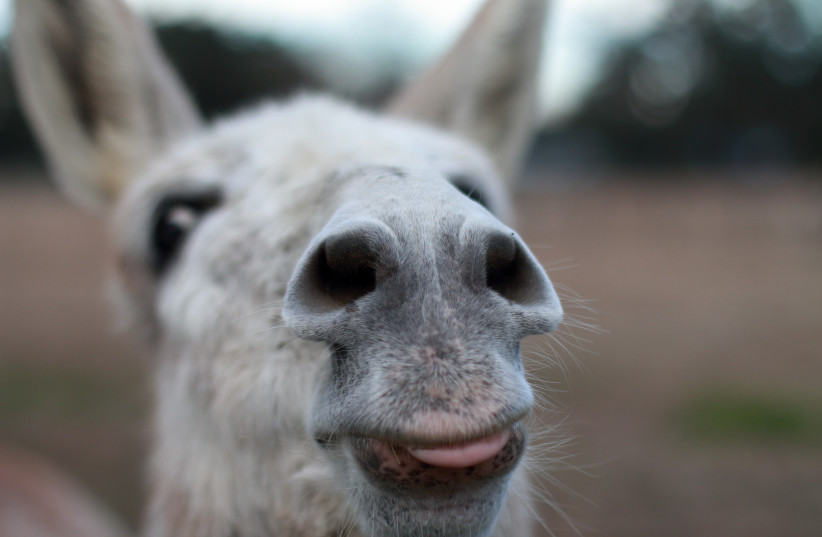The phrase “eking out a living” evokes fathomless poverty and hardship. Ruijun Li’s Return to Dust, which opens in theaters all over Israel on April 27, tries to show what that expression actually means, as it combines a moving love story with a look at the tragedy of rural poverty in China.
It’s a slow-paced movie, which demands patience from viewers, and will be too austere for the vast majority of moviegoers.
In its opening scene, relatives from two families plan a match for relatives they consider a burden, who passively accept their proposal and marry. Ma (Renlin Wu) lives alone in a shack with his donkey, barely speaking to anyone. Cao (Hai-Qing) suffers from a debilitating and embarrassing medical condition and walks with a limp, and her family barely tolerates her. Each is so lonely that finding another soul to share their life with is a gift that neither takes for granted. Renlin Wu and Hai-Qing excel in minimalist acting in which each shows their pleasure in the other’s company with the tiniest facial movements and shifts in body language.
They live in a remote village that seems to have been all but forgotten by the government. This is not the China of huge cities and factories, but a place where people live much as they have for thousands of years.
Ma and Cao don’t have the energy or temperament to head for a city and only know a life of agriculture. At first, it seems improbable that, even combining their efforts, they could manage to live off the small patch of land that is theirs to farm, but they work constantly and are able to grow crops and raise animals, aided by Ma’s trusty donkey. The movie lovingly shows the details of how they work their fields, care for their animals and build a hut out of blocks of mud. The cinematography is lovely, and when they sit in their cabin, lit only by a fire, their faces look like Rembrandt portraits.

In the movie’s most poignant scene, Cao tells Ma that when she saw him for the first time, he shared his food with his donkey and treated the animal affectionately.
“I saw that the donkey had a better life than I did,” she tells him, and except for one scene when he grows frustrated because she is too weak to load their wagon with wheat, he treats her with great love and respect, unlike her biological family.
An uglier story of inescapable poverty
While the movie celebrates their love, it also tells an uglier story, but in a less coherent way. They cannot afford doctors, but medical science is advanced enough in their region for an ailing, wealthy landlord to know that he and Ma share the same rare blood type. He pays Ma for donating blood to him, but Ma clearly has no choice but to comply, an illustration of how he is literally being bled dry by the system. This system, which ensures that no matter how hard they work, they can barely get by, is presented as if it were a kind of natural phenomenon. No one criticizes the government and there is no anger at the authorities, who do nothing to help people like Ma and Cao.
At one point, they are shown an apartment in a new building, and Ma’s brother urges them to move in, as a camera crew documents the scene. When Ma asks where their donkey, pigs and chickens will live in this apartment, his very serious question is treated like a joke, and no one answers it, but the truth is that they cannot live without their animals.
As far as those animals go, the one shown most often is their gentle, cute donkey, and it seems this animal is having a cinematic moment, with such recent movies as The Banshees of Inisherin and EO featuring donkeys front and center.
The movie was initially a huge success in China, but was later removed from theaters and streaming platforms, in a move seen as censorship, even though the film makes no explicit criticism of the government. In the version shown in China, dialogue was added at the end to give the movie a more upbeat conclusion.
While the acting and cinematography are outstanding, at times I felt frustrated with how gleamingly wonderful the two main characters were. The truth is, no one would want to see a movie where characters fighting to stay alive in the face of great poverty bicker or drink to excess; so in order to get audiences to sit through this, theirs must be a great love story.
Even if you enjoy the story of their relationship, it’s a tough movie to sit through, and you will need the patience of a farmer to truly get into it.
